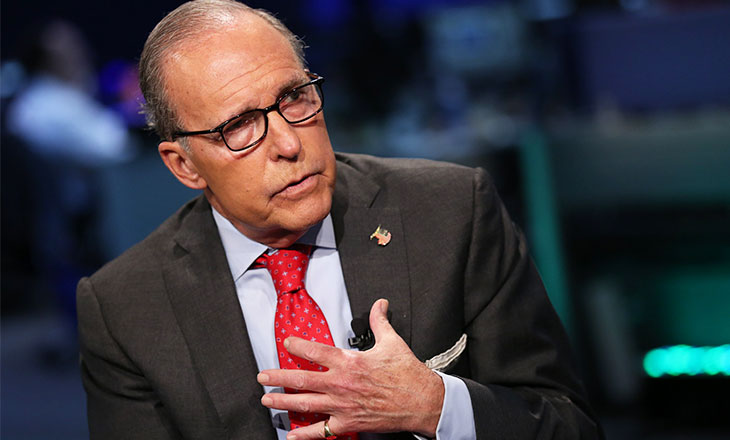We are accustomed to witnessing strange behavior on the part of government officials in developing countries, where the all powerful leader demands loyalty at all costs and directs his minions to do whatever it takes to sustain his position in power. Apparently, according to many of his critics, the Trump administration is headed down a similar path, where anything, regardless of ethics, integrity, or the law, is acceptable, as long as it enhances the interests of the ruling party. Can this scenario be bullish for Bitcoin?
The latest shift in logical principles one would expect in the land of the free comes from Trump’s Director of the National Economic Council, Larry Kudlow, who seems to imply that skyrocketing debt is acceptable, if supportive. The Republican Party has always espoused fiscal responsibility. Mr. Kudlow’s career has bounced between stints with Ronald Reagan and Wall Street, and then culminating in 2001 with becoming an economic media commentator, first with National Review, and later hosting several shows on CNBC. In March of 2018 at the age of 71, Trump persuaded him to join his team in Washington. After joining, he has become a biased mouthpiece for his boss.
Kudlow has been known to be a supply-side evangelist, preaching tax cuts and deregulation as cure-alls for whatever ails the economy. Critics contend that his views are at times extreme, even strident, attracting quick opposition when the evidence at hand argues for a counter position, but as a television host, his behavior may have been necessary to boost ratings. He endorsed Trump as a candidate, one reason for the close association with the current administration.
The news today, which many of his same critics find appalling, is that he has backed away from anything that resembles fiscal responsibility and has endorsed Trump’s desires for a weak Dollar and low interest rates. His shocking proclamation was that he “wouldn’t see another rate hike in his lifetime,” this remark coming from a man, who suffered a mild heart attack last June. Tax cuts and reckless spending have ballooned the national debt, and budget deficits continue to rise with no end in sight.
The Federal Reserve has been doing its level best to allow for growth in the economy, while keeping inflation at a low hum, but bloating debt will sooner or later take its toll. Forecasts of economic growth are in decline, and the possibility of a recession in this or next year is becoming a real possibility, one that could upset Trump’s bid for re-election in 2020. Kudlow’s obvious objective is to do whatever it takes from his position of influence to prevent this scenario from transpiring, i.e., get the Fed to back down.
As per one report:
Of course, we know the real reason he threw cold water on rate hawks. He’s trying to make sure the stock market is as pumped up as possible for Trump 2020 – so he can keep his job. Kudlow’s economic plan also requires a desperately weak dollar to keep foreign investment funding the debt-hole Trump blew open with the recent tax reform.
The crypto community reacted quickly to these events by suggesting that Kudlow was making a perfect case for Bitcoin and other cryptocurrencies, as protections against total financial mismanagement by those in control of the government. The consensus opinion is best summarized by the following remarks:
I’ve never seen a more compelling argument for Bitcoin than the corruption and mismanagement that infects so many governments and central banks. Usually, these are in nations like Zimbabwe or Venezuela, where abuse of power has permeated every inch of public governance. However, disastrous monetary policy festers in the first-world, too.
As politicians the world over continue to kick the “debt can” down the road, rather than deal with the tough decisions that might negatively impact elect ability, Millennials and Generation Z individuals will have to shudder at the prospect of enormous tax burdens and economic pain that awaits them when those in control now have quietly departed. The “store of value” concept of Bitcoin may then become readily apparent, as the buying power of fiat currencies deteriorates.
